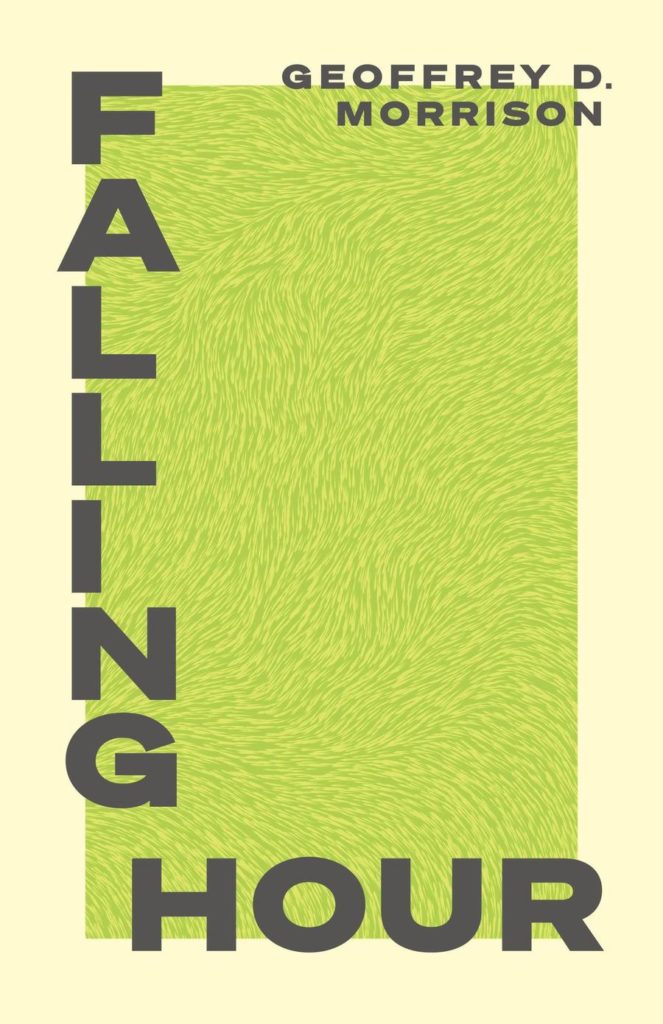
Falling Hour
Geoffrey Morrison, 224 pgs, Coach House Books, chbooks.com, $22.95
This meandering debut novel from Geoffrey D. Morrison is an occasionally interesting look at a self-loathing young adult as he waits at a park to sell a picture frame. It’s a book that’s about nothing, but it’s also a book that is stuffed with ideas and opinions.
The novel follows 31-year-old Hugh Dalgarno as he waits around for someone to buy a picture frame from him. He’s of a type: over-educated, nominally leftist in his beliefs and he wears a thrifted pair of white pants. But he also thinks his brain is broken and he spends the day sifting through its detritus. He free-associates, thinks back to his upbringing and recalls fragments of songs and poems.
Indeed, he rambles in the old-fashioned sense of the word: as he monologues, he roams the park and the canyons of his mind. He shares his thoughts about Keats, the CIA, Gene Hackman movies and his fractured familial history. He’s smart, but alienated from his peers and almost friendless. He never fits in, but it’s never his fault, either. His self-loathing is disguised as self-pity. And from his lofty perch, he looks down on every-one else.
Delgarno describes himself as a “self-taught working man,” but he’s got a master’s degree and works for a luxury streetwear company. He’s a self-described Marxist who isn’t above selling stuff he finds on the street for a quick buck. He wonders about not fit-ting in, but then he goes and describes people like this: “All were shown to be fakes, figments, fragments. Made up. Obvious.”
It’s tempting to compare Falling Hour to Ducks, Newburyport, another lengthy interior monologue. But where Ducks was a high-wire act of virtuosity, Falling Hour never reaches its high ambitions. It lacks the sense of dread and anxiety that makes Ducks feel alive. It’s because Lucy Ellmann knows how to pace things and show what’s happening around the narrator slowly building. Conversely, Falling Hour is a working through of thoughts about society and one’s relation to it by someone old enough to question received wisdom but young enough to think they have all the answers.
That said, the book shows Morrison as someone with potential, especially in creating memorable characters, and who isn’t afraid of pushing himself. One wonders where he’ll go from here.
